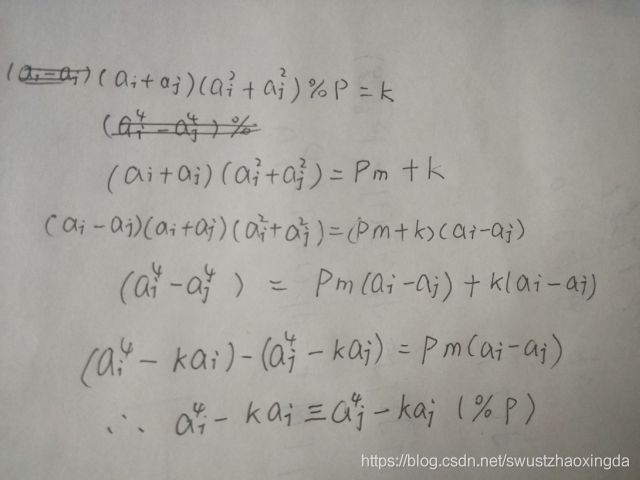Count Pairs CodeForces - 1188B 推式子
You are given a prime number pp , nn integers a1,a2,…,ana1,a2,…,an , and an integer kk .
Find the number of pairs of indexes (i,j)(i,j) (1≤i Input The first line contains integers n,p,kn,p,k (2≤n≤3⋅1052≤n≤3⋅105 , 2≤p≤1092≤p≤109 , 0≤k≤p−10≤k≤p−1 ). pp is guaranteed to be prime. The second line contains nn integers a1,a2,…,ana1,a2,…,an (0≤ai≤p−10≤ai≤p−1 ). It is guaranteed that all elements are different. Output Output a single integer — answer to the problem. Examples Input Output Input Output Note In the first example: (0+1)(02+12)=1≡1mod3(0+1)(02+12)=1≡1mod3 . (0+2)(02+22)=8≡2mod3(0+2)(02+22)=8≡2mod3 . (1+2)(12+22)=15≡0mod3(1+2)(12+22)=15≡0mod3 . So only 11 pair satisfies the condition. In the second example, there are 33 such pairs: (1,5)(1,5) , (2,3)(2,3) , (4,6)(4,6) . 、震惊,居然是道大水题 3 3 0
0 1 216 7 2
1 2 3 4 5 63#include
